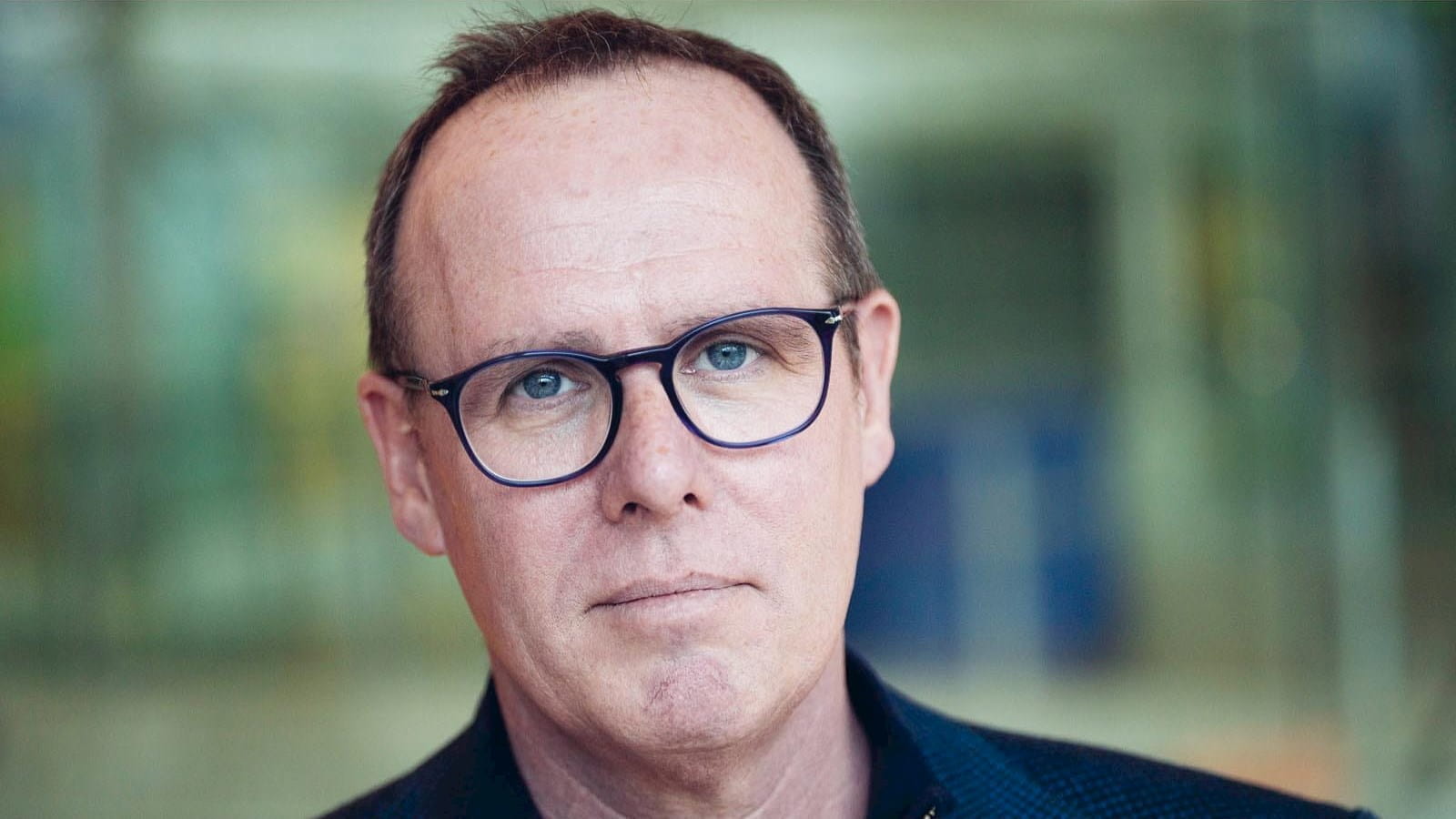It’s the name behind many of the everyday brands that have come to the fore during the pandemic. Unilever’s Chief Financial Officer Graeme Pitkethly talks to Michelle Perry about its future plans to make the world a better place
Before COVID-19, hand gel was a relatively small part of Unilever’s portfolio. But since handwashing and sanitising became the best defence against spreading coronavirus until a vaccine is found, consumers have continued to clear the shelves of hand gel.
Today, the Anglo-Dutch group’s hand sanitiser, Lifebuoy, is set to be the next €1bn brand in Unilever after launching in 50 new markets in less than 100 days. To fulfil demand, Unilever adapted its deodorants factory in Leeds, and other factories around the world, to produce hand gel “at scale in a matter of weeks, increasing our production capacity 600 times”, says Graeme Pitkethly, the company’s Chief Financial Officer.
Start-ups and smaller fast-growing businesses are more often described as agile, but Unilever has proved that well-run multinationals can also harness speed and nimbleness.
“We’ve had to move faster and with more agility to respond to the needs of our consumers than in any other period I can recall. A multi-stakeholder model is central to Unilever, and has been invaluable in framing our response to the pandemic,” says Pitkethly, who has worked in the consumer goods sector since 2002.
With this kind of response, it’s no wonder Unilever has had a good period in terms of its financial results and outlook. First half results for 2020, published in July, show how resilient the business is despite the ravaging effects of COVID-19 and the global lockdown. Underlying sales fell just 0.1% in the six months to 30 June 2020, while turnover dropped 1.6%.
Looking to the future, the company is in robust shape, freeing up cash flow from €1.3bn to €2.9bn, and making €500m of cash available to suppliers affected by the pandemic. This has included early payments to small and medium-sized suppliers, and extending credit to some small-scale retail customers. “It’s an investment worth making, as the cost of not doing anything now, when we have the balance sheet and access to cash that allows it, far outweighs the short-term impact,” he says, referring to the support for suppliers.
Despite Unilever’s seemingly recession-proof product lines, the group has not gone unscathed. The virus’s impact in the first six months of the year varied widely across the company’s product lines, according to the maker of Magnum and Ben and Jerry’s ice creams. Unilever’s food service division, which serves restaurants, cafes and bars, saw sales fall by nearly 40% but the business saw growth in ice cream and tea as more people stayed home.
Unilever, also the world’s largest soap company, contributed to the global effort to combat the virus. “We have a moral obligation to make our soap – brands such as Lifebuoy, Pears, Dove and Lux – more readily available worldwide, and overall we committed early to provide free soap, sanitiser, bleach and food to the value of €100m,” says Pitkethly.
Although Pitkethly says it’s still too early to say whether certain things will revert back to the old ways, he says “something I’m hoping won’t is this revitalised interest in environmental, social and governance issues (ESG) and sustainable finance. We will see a once-in-a-generation opportunity to create a more equitable, fairer system of capitalism.”
This is no casual hope. Pitkethly is Vice-Chair of the Task Force on Climate-related Financial Disclosures (TCFD), created in 2015 by the Financial Stability Board (FSB), to develop consistent climate-related financial risk disclosures for companies, banks, and investors providing information to stakeholders.
Another aspect of change he has evaluated during lockdown is how we spend our time. “It has been incredible how much time we can all get back from not travelling – not just the daily office commute but business trips abroad and the time spent on trains and planes. When the world opens up again there will always be a place for face-to-face contact, and personally I do miss it a lot, but equally it has made all of us re-evaluate how we spend our time.”
For now, there are other pressing issues at stake. Unilever is a FTSE-100 company and one of Britain’s oldest, and is preparing to move its HQ from the Netherlands to the UK, affording the Anglo-Dutch group “greater strategic flexibility”.
Pitkethly says the move back to London is aimed at modernising the company”s complex legal structure, “which was established 90 years ago”, and to “ensure we are best positioned for future success”.
The company wants to sell off parts of the business that aren’t performing as well. The move will help “accelerate the pace of portfolio change from structurally lower growth to higher growth categories, and unifying our legal parent structure gives us greater flexibility to achieve that, including through equity-based acquisitions or demergers”. At a time of great turmoil, tackling the virus and climate change, a move to simplify structures will certainly help the group achieve its ambitious sustainability goals too.
In June Unilever pledged to invest €1bn in a new Climate & Nature Fund, which will be used over the next 10 years for investment in landscape restoration, reforestation, carbon sequestration, wildlife protection and water preservation. This comes off the back of previous commitments to net zero emissions from all of its products by 2039, as well as a deforestation-free supply chain by 2023.
Pitkethly says sustainability goals were always part of the plan, but “the current crisis made it feel more urgent. The sustainability challenges we face have not disappeared. And the negative impacts of both the pandemic and sustainability challenges are hitting those who can ill-afford it hardest. There is a worrying symmetry.”
Graeme Pitkethly appears on ICAEW’s More than a Number podcast, $12trn – profiting from the planet, and is also interviewed in a bonus episode. The podcast is available on major streaming sites.

